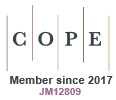Public and stakeholder values of wildlife in Victoria, Australia
Wildlife Research
30(5) 465 - 476
Published: 04 December 2003
Abstract
This paper explores the management implications of a recent study that was designed to explore public and stakeholder values of wildlife in Victoria, Australia. Questionnaires (n = 1431) were used to examine values and knowledge of wildlife held by residents from seven Victorian municipalities and members of six wildlife management stakeholder groups. The results suggest that most Victorians have a relatively strong emotional attachment to individual animals (the humanistic value) and are interested in learning about wildlife and the natural environment (the curiosity/learning/interacting value). In comparison, the negativistic, aesthetic, utilitarian-habitat and dominionistic/wildlife-consumption values were not expressed as strongly. These findings suggest that wildlife managers should expect support for wildlife management objectives that reflect the relatively strong humanistic orientation of Victorians and tailor management and education programs to appeal to this value and Victorians' interest in learning about wildlife.https://doi.org/10.1071/WR02007
© CSIRO 2003


